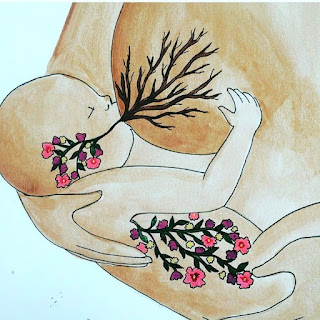UNDER WEIGHT
UNDERWEIGHT
People with BMI less than 18.5 are considered as under weightSome of the causes of underweight are
1. Starvation due to famine
2. Diet inadequate in proteins
3. Debilitating diseases like tuberculosis, diabetes mellitus
4. Malabsorption syndrome or cancer
5. Psychological factors as in anorexia nervous seen in girls in
the age group 15 to 25 years
6. Pathological conditions such as fevers, gastro-intestinal
disturbances where the digestion and absorption capacities
are decreased.
Dietary Modification
A high energy, high protein, high fat diet with liberal vitamin
intake is recommended. Before consuming such a diet the first step
should be to determine and eliminate the cause for under eating.
Energy: The calorie requirements vary depending upon the
activity. An additional 500 kcals per day to the recommended dietary
allowances is recommended. The increase should be gradual over
one or two weeks to prevent digestive disturbances.
Proteins
Instead of 1g of protein, over 1.2 g per kg body
weight is recommended for tissue building. Good quality protein
which is completely utilized by the body should be given.
Fats
Easily digestible fats are to be included. Excessive
consumption of fried and fatty foods are not recommended as they
may cause diarrhoea. Further, fatty foods taken at the beginning of
a meal also reduces appetite. High calorie foods such as cream,
butter, and oils increase weight and can be included.
Carbohydrates(CHO)
High carbohydrate sources must form the
basis of the diet. Dried fruits, sweets, nuts, jams, desserts, cereal
and cereal products, potato chips and non vegetarian foods are a
rich source of energy and should be included in the diet. Apart
from the three meals, two feeds incorporating soups, juices or sweets
in between main meals improve the nutritive value of the diet.
Vitamins and minerals
There is no need for extra vitamin and mineral
supplements when the dietary intake is liberal.
Fluids
Fluids should not be taken before or with a meal, but only after
a meal so that the food intake is not reduced.
Exercise
Regular outdoor exercise (light/moderate activity) should
be performed as it helps to stimulate appetite and thereby increases
food intake.

Comments
Post a Comment